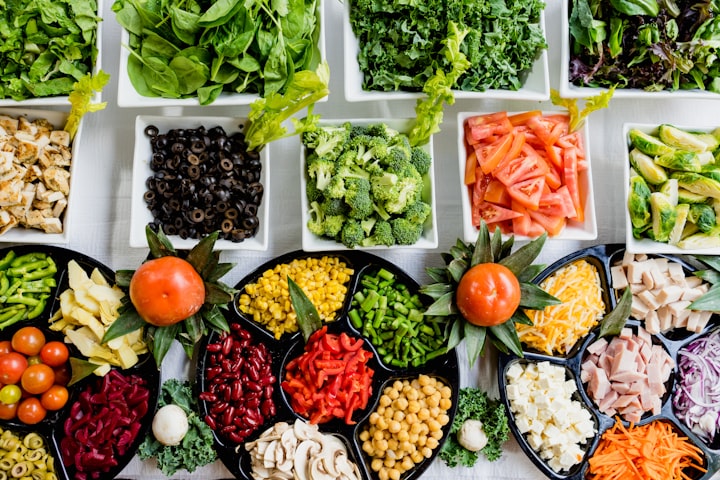Best Foods to Fight the Winter Blues
Nutritionist Reveals the Top Foods You Should Eat to Combat Seasonal Affective Disorder (SAD)
It's no secret that the food we eat can have a significant impact on our mood, and this is especially true during the winter months when many people experience Seasonal Affective Disorder (SAD). SAD is a type of depression that is triggered by the shorter days and longer nights of winter, and it can cause symptoms such as low mood, fatigue, and social withdrawal.
While there are a number of different treatments for SAD, including light therapy and medication, diet can also play a major role in managing symptoms. According to Kyle Crowley, a nutrition expert at Protein Works, "Diet plays a major role in hormone regulation, and ensuring the body is kept fueled with healthy nutrients is particularly important in winter months to promote positive mental health."
Understanding Seasonal Affective Disorder (SAD)
What is SAD?
Seasonal Affective Disorder, or SAD, is a type of seasonal depression prevalent during winter and fall. The root cause is not entirely clear, but scientists attribute it to the chemical imbalances in the brain triggered by shorter days and longer nights.
Conventional Treatments for SAD
Typical treatments for SAD include light therapy, prescribed sunlight exposure, and, in some cases, antidepressants. However, recent insights suggest that our dietary choices play a pivotal role in managing this condition.
The Impact of Diet on Mental Health
Hormone Regulation and Diet
"Diet plays a major role in hormone regulation," emphasizes Kyle Crowley, a nutrition expert at Protein Works. He points out that maintaining a well-nourished body, especially during the winter months, is crucial for promoting positive mental health.
Vitamin D and its Significance

Oily fish such as salmon, sardines, and mackerel emerge as heroes in the battle against the winter blues. These fish are rich in vitamin D, a nutrient essential for hormone balance. Given the challenges of obtaining sufficient sunlight exposure in winter, incorporating vitamin D from dietary sources becomes vital.
Mood-Boosting Foods for Winter
Oats: More Than a Morning Pick-Me-Up

Beyond being a comforting breakfast choice, oats play a crucial role in stabilizing blood sugar levels. High in fiber and containing zinc, oats contribute to overall brain health. They also trigger the release of tryptophan, an amino acid precursor to serotonin, effectively lowering anxiety and depressive symptoms.
Berries: Nature's Mood Enhancers

Berries, with their abundance of vitamins, fiber, and antioxidants, prove to be excellent mood enhancers. From activating brain pathways to combating stress through vitamin C, berries offer a plethora of benefits. Even during winter, frozen berries can be a convenient and effective addition to your diet.
Flaxseed: Plant-Based Mood Boosters

Plant-based flaxseeds emerge as a powerhouse of nutrients, including omega-3 fatty acids. These acids contribute to increased dopamine and serotonin levels, crucial for mood and mental health. The fiber in flaxseeds supports gut microbiome health, known to play a role in regulating SAD cycles.
Balanced Diet for Maximum Effect
Introducing these blues-busting foods is effective when accompanied by a balanced diet. Kyle Crowley warns against the pitfalls of increased sugar intake, especially during the festive period. Managing sugar intake consciously and coupling it with protein, fiber, and low glycemic index carbohydrates can enhance the body's response to dietary changes.
Conclusion
In the battle against the winter blues, our diet emerges as a powerful ally. From vitamin D-rich oily fish to the mood-stabilizing properties of oats and the nutrient-packed goodness of berries and flaxseeds, these dietary choices can significantly impact our mental well-being. While SAD may cast a shadow during the colder months, a mindful approach to what we eat can bring rays of positivity.







Comments
There are no comments for this story
Be the first to respond and start the conversation.